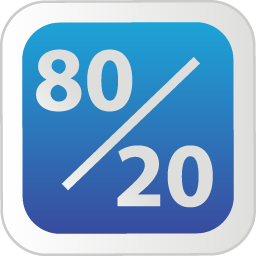Some clients are better than others. You know the ones I’m talking about. They have more work for you (or bigger cases), they pay on time, and they don’t call you every other day to ask the same questions you already answered three times before.
I’m sure you have your own list of what constitutes a better client.
Better clients are worth more to us and we should acknowledge this. We shouldn’t feel guilty about treating some clients better than others or trying to treat everyone the same because it’s fair or politically correct.
Look, if someone is paying me $150,000 a year, I’m going to give him more attention than someone who pays me $1,000 for a one time transaction. That’s just the way it is.
Of course today’s $1,000 client could refer tomorrow’s $10,000 client who could, in turn, refer next year’s $100,000 client. And so the notion of treating some clients better than others does not imply that it’s okay to treat some clients below a minimum standard of care. In fact, we should strive to exceed that minimum whenever possible. But let’s face it, not all clients deserve the same treatment.
Seth Godin agrees.
So does Richard Koch, the author of The 80/20 Principle:
“Marketing, and the whole firm, should devote extraordinary endeavour towards delighting, keeping for ever and expanding the sales to the 20 per cent of customers who provide 80 per cent.”
Make a list of your “twenty percent” clients, the ones who provide the bulk of your income. Start paying more attention to them, acknowledging them and strengthening your relationship with them. Give them more of your (non-billable) time, spend more on their Christmas gifts, and do whatever you can do to convert them from being merely “satisfied” clients to raving fans.
And while you’re at it, make a similar list for your referral sources.
By the way, the same idea applies to prospects. Some are better than others. You should have a plan in place to give more to those who are worth more.











